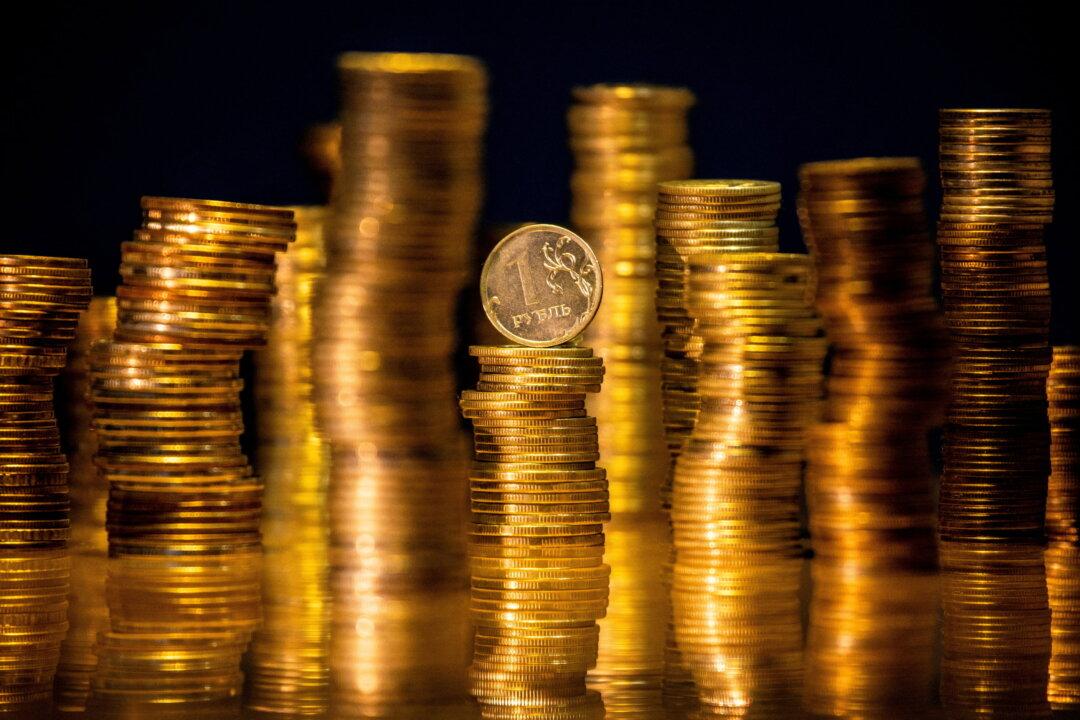(Reuters) -The Russian rouble strengthened on Monday, firming past 77 against the euro to a near two-year high, helped by tax payments that companies are due to make this week and as the market looked ahead to a central bank rate decision on Friday.
By 2:53 p.m. GMT, the rouble had gained 3.6 percent to trade at 77.25 versus the euro, earlier clipping 76.96, its strongest mark since June 2020.





